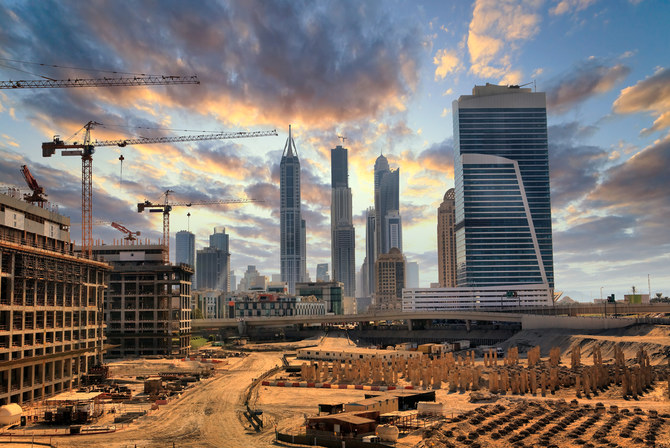GCC Real Estate Market Booms to $383 Billion in Transactions
The Gulf Cooperation Council (GCC) real estate market has witnessed a record-breaking year, with total transactions soaring to an astonishing $383 billion. This remarkable surge reflects a growing and sustained demand for properties across key countries, including Saudi Arabia, the United Arab Emirates (UAE), Kuwait, Qatar, Bahrain, and Oman. Real estate in the GCC continues to be a lucrative investment, attracting both regional and international buyers who are looking for stable returns, long-term appreciation, and high rental yields.

Key Highlights of the GCC Real Estate Market
- The total value of real estate transactions in the GCC reached an impressive $383 billion in 2024, showcasing the robust health of the property sector and the increasing interest of investors.
- Strong investor confidence is being driven by economic diversification efforts, government initiatives, and the relaxation of property ownership laws, which have allowed more foreign buyers to participate in the market.
- The region is experiencing increasing rental yields, making it an attractive market for both local and international property investors seeking steady and competitive returns on their investments.
- High demand for apartments remains a significant trend, largely fueled by a rising expatriate population, local buyers looking for modern living spaces, and the continued expansion of urban centers in major GCC cities.
Country-Wise Breakdown of Apartment Yields
The GCC real estate market is experiencing an upward trajectory, with apartment rental yields varying across each country. Here’s how rental returns compare in 2024 across the region:
1. Saudi Arabia
- The major real estate hotspots in Saudi Arabia include Riyadh, Jeddah, and Dammam, where residential and commercial properties are experiencing high demand.
- Average rental yields in Saudi Arabia range between 6% and 8%, making it an attractive destination for property investors looking for strong returns on investment.
- The market trends indicate rapid urban expansion driven by Saudi Arabia’s Vision 2030 initiatives, which aim to diversify the economy, reduce dependence on oil revenues, and stimulate private sector growth.
- There is a high demand for both mid-range and luxury apartments, with increasing interest from foreign investors due to regulatory changes that allow more international ownership in key real estate sectors.
2. United Arab Emirates (UAE)
- Dubai, Abu Dhabi, and Sharjah remain the top cities for property investment, with strong demand for residential and commercial real estate.
- The UAE boasts an average rental yield of 5% to 7%, with some high-demand areas in Dubai offering even higher returns due to tourism, business hubs, and expatriate population growth.
- Market trends indicate that Dubai remains a global property hotspot, with demand continuing to surge as a result of economic diversification, lifestyle appeal, and continued government incentives for foreign investors.
- The legacy of Expo 2020 continues to impact the UAE real estate market positively, driving strong infrastructure development, economic opportunities, and increased foreign investment.

3. Kuwait
- Kuwait City, Al Jahra, and Hawalli are the leading real estate markets within the country, with stable rental demand.
- The country’s average rental yield stands at 4% to 6%, which, while slightly lower than other GCC nations, still provides solid investment opportunities.
- Kuwait has stricter property ownership laws for foreigners compared to other GCC nations, which has limited direct foreign investment but maintained high rental occupancy rates.
- The demand for rental units remains strong among expatriates, with limited new supply helping to keep rental prices stable.
4. Qatar
- Doha, Al Wakrah, and Lusail are the primary real estate investment hotspots in Qatar, witnessing continued growth in rental demand.
- The country’s average rental yield ranges between 5% and 7%, reflecting strong demand in both short-term and long-term rental markets.
- The impact of FIFA World Cup 2022 continues to shape the real estate market, with major infrastructure developments leading to increased property values and higher rental occupancy rates.
- Government initiatives aimed at attracting foreign investors, such as long-term residency permits for property buyers, continue to make Qatar an appealing destination for real estate investment.
5. Bahrain
- Manama, Muharraq, and Riffa stand out as the most attractive property investment locations in Bahrain.
- With rental yields ranging from 7% to 9%, Bahrain currently offers some of the highest returns on investment in the GCC region.
- The country has favorable property ownership rules for expatriates, making it one of the easiest places in the GCC for foreign buyers to own real estate.
- The real estate market remains affordable compared to larger GCC nations like the UAE and Saudi Arabia, making it a preferred choice for investors seeking high rental returns at lower entry costs.
- Growing tourism and business expansion have further boosted demand for rental properties, with a steady influx of expatriates driving occupancy rates upward.
6. Oman
- Muscat, Salalah, and Sohar are the key cities driving Oman’s real estate market growth.
- Rental yields in Oman range between 6% and 8%, reflecting solid investment potential and increasing demand for apartments.
- Government initiatives focused on promoting foreign investment, including property ownership rights for non-residents in designated areas, have contributed to market expansion.
- The growing demand for affordable housing solutions and a stable economy have helped Oman maintain a steady and healthy real estate sector.

Factors Driving the GCC Real Estate Market Growth
The massive surge in real estate transactions is being driven by several crucial factors:

1. Economic Diversification Efforts
- Governments across the GCC are actively reducing their reliance on oil revenues, instead focusing on expanding non-oil sectors like tourism, infrastructure, and real estate.
- The shift towards economic diversification is fostering increased investment opportunities in various industries, including property development and urban planning.
2. Foreign Investment and Property Ownership Laws
- Countries like the UAE, Bahrain, and Qatar have introduced relaxed property ownership laws, allowing more foreign investors to enter the market and buy properties with long-term ownership rights.
- Saudi Arabia’s Vision 2030 initiative continues to encourage real estate investments, opening new avenues for domestic and international buyers.
3. Rising Demand for Rental Properties
- The GCC is home to a large expatriate population, driving consistent demand for rental units across major cities.
- Growing tourism, business expansion, and global connectivity have led to a rise in short-term and long-term rental demands, supporting the strong rental yield trends in key real estate markets.
4. Mega Projects and Infrastructure Development
- Major developments such as Saudi Arabia’s NEOM city project, Dubai’s Smart City initiatives, and Qatar’s Lusail City expansion continue to attract both investors and residents.
- Infrastructure advancements and modern urban planning are positioning the GCC as a global real estate hotspot.
Future Outlook for GCC Real Estate
Experts predict sustained growth in the real estate sector across the GCC region. With government-led projects, foreign investment incentives, and increasing demand for residential properties, the market is expected to continue expanding in 2025 and beyond.
What Investors Should Know
- Bahrain and Oman currently offer the highest rental returns, making them attractive options for investors seeking strong yields.
- Dubai, Riyadh, Doha, and Manama continue to be top investment destinations due to their economic growth and strong real estate fundamentals.
- Regulatory changes, interest rate fluctuations, and economic shifts may impact returns, so investors should stay informed on market trends and policies.
The GCC real estate market, with a massive $383 billion in transactions, remains a thriving hub for investors looking for long-term profitability, capital appreciation, and stable rental income opportunities.

Do Follow UAE Stories For More Updates.














